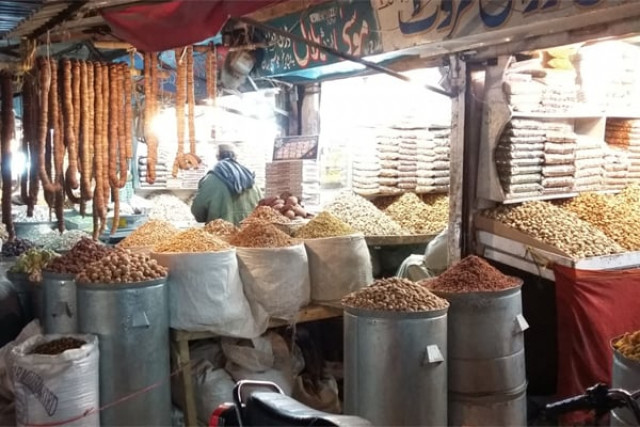Food inflation hits Punjab as price-control mechanisms prove ineffective
Consumers pay well above official rates as vegetable and poultry prices remain significantly high across markets

The rising prices of perishable food items across Punjab have triggered widespread frustration, as consumers continue to pay well above officially fixed rates for basic commodities. Despite the formation of new price control departments, enforcement remains ineffective, leading to growing doubts about the government's ability to rein in food inflation.
This week, the prices of essential vegetables and poultry products remained significantly above government-sanctioned rates in local markets, with no single vegetable available for under Rs 200 per kilogram. The persistent violation of official price lists not only highlights the government's weak regulatory grip but also calls into question the utility of the newly established price control mechanisms, which critics say are adding to administrative costs without delivering results.
In poultry markets, discrepancies between fixed rates and actual market prices remained stark. The official rate for live chicken was reduced by Rs 15, bringing it to Rs 374–388 per kilogram, yet consumers reported paying between Rs 460 and Rs 480 per kilogram. Similarly, chicken meat was officially priced at Rs 562 per kilogram but was being sold for Rs 570–640, while boneless chicken ranged as high as Rs 1,200 per kilogram.
Also Read: Punjab to remain in the grip of climate events
Vegetables also showed alarming price gaps. For example, A-grade soft-skin potatoes were fixed at Rs 80–85 per kilogram but were sold at Rs 140–150. Onion prices officially stood at Rs 50–55 per kilogram for A-grade quality, yet they reached up to Rs 100 in the market. Tomatoes were set at Rs 82–90 per kilogram, but prices surged to Rs 150.
Garlic and ginger were among the most overpriced items, with garlic varieties retailing for up to Rs 400 per kilogram against official rates of Rs 210–260. Ginger, depending on origin, was sold for Rs 600–700 per kilogram, far exceeding the fixed rates of Rs 400–460.
Other vegetables—such as cucumber (Rs 200/kg), brinjal (Rs 150/kg), bitter gourd (Rs 220/kg), and ladyfinger (Rs 240/kg)—also saw steep markups. Spinach, pumpkin, zucchini, lemon, and arum followed a similar pattern, regularly exceeding official prices by Rs 30–100 per kilogram.
Fruits were no exception. Apples, priced officially at Rs 145–265 per kilogram, sold for as much as Rs 350. Banana prices saw a jump of Rs 50–90 above the fixed rates depending on grade, while guava and papaya either exceeded limits or were not available at all. Grapes and mangoes, despite minor adjustments in official pricing, were sold at significantly inflated rates, with some varieties reaching Rs 500 per kilogram.
Read: Rawalpindi gears up for emergencies as next monsoon spell nears
Even middle-income consumers found basic fruits such as sweet melon, dates, and peaches to be unaffordable. Dates, for instance, were officially priced at Rs 460–490 per kilogram but were seen in markets at rates as high as Rs 2,000 per kilogram.
Amid these widespread violations, market inspectors and newly formed price monitoring departments appear unable to enforce compliance. Critics argue that the government’s price control efforts have become largely symbolic, lacking the administrative strength or political will to penalise violators.
As food inflation continues to pressure household budgets—especially for low- and middle-income families—public confidence in the government’s economic management and regulatory framework continues to erode.






















COMMENTS
Comments are moderated and generally will be posted if they are on-topic and not abusive.
For more information, please see our Comments FAQ